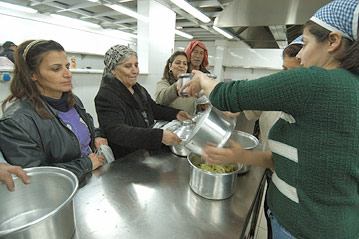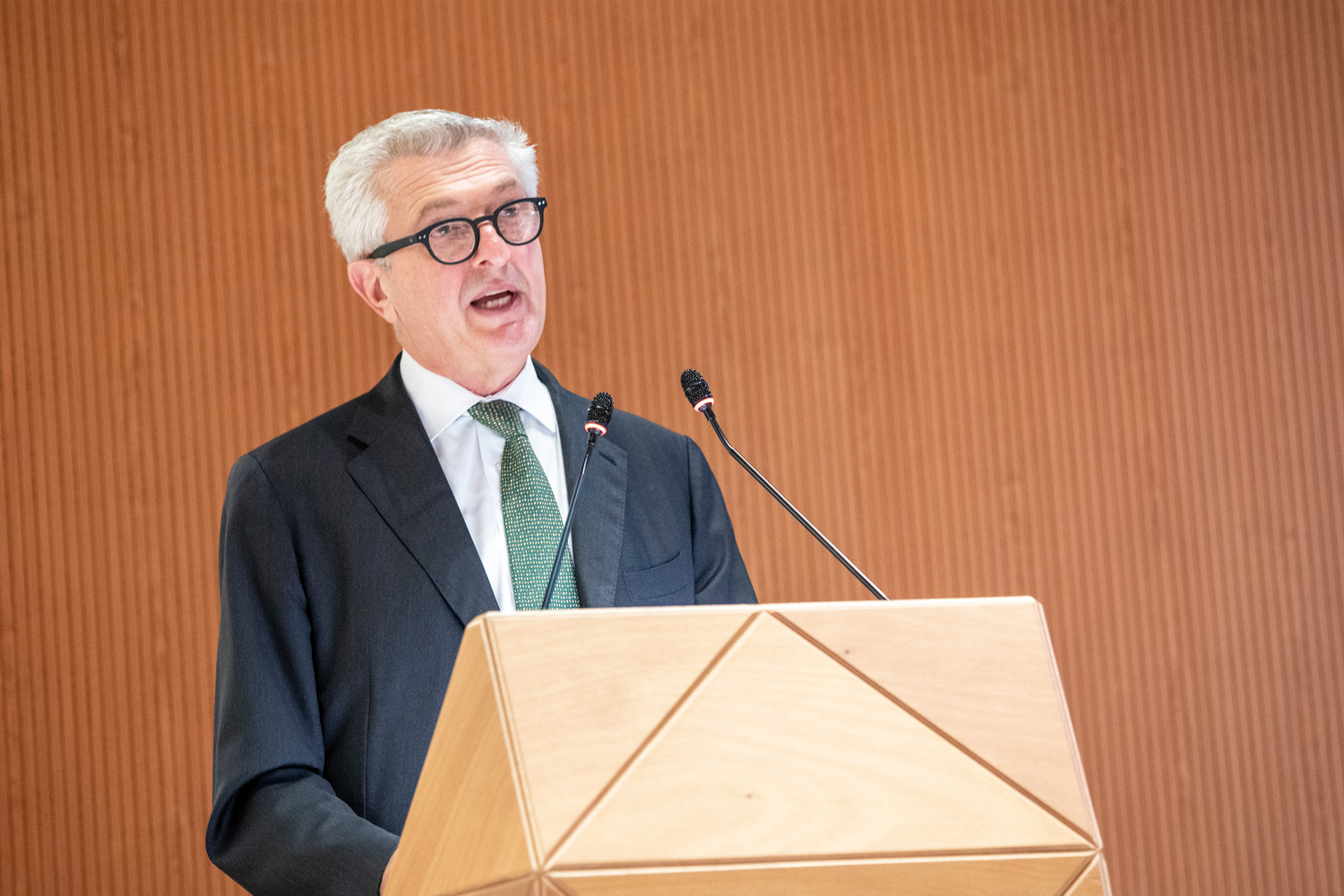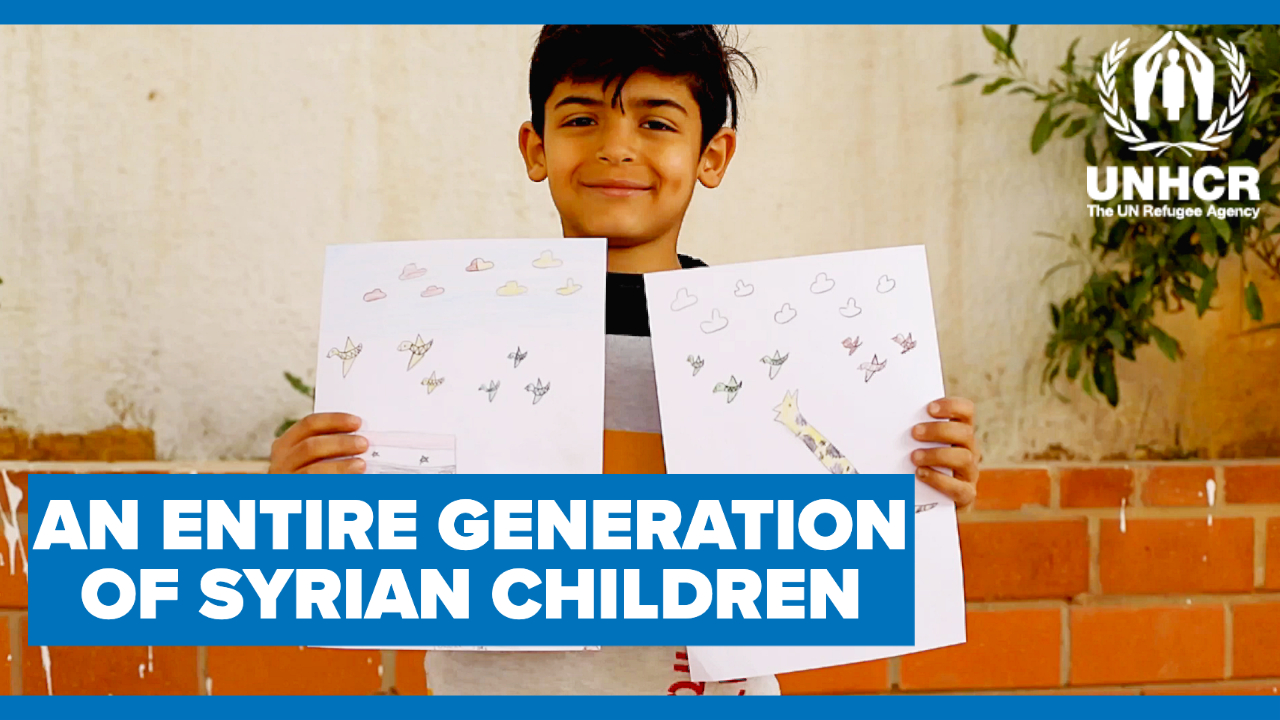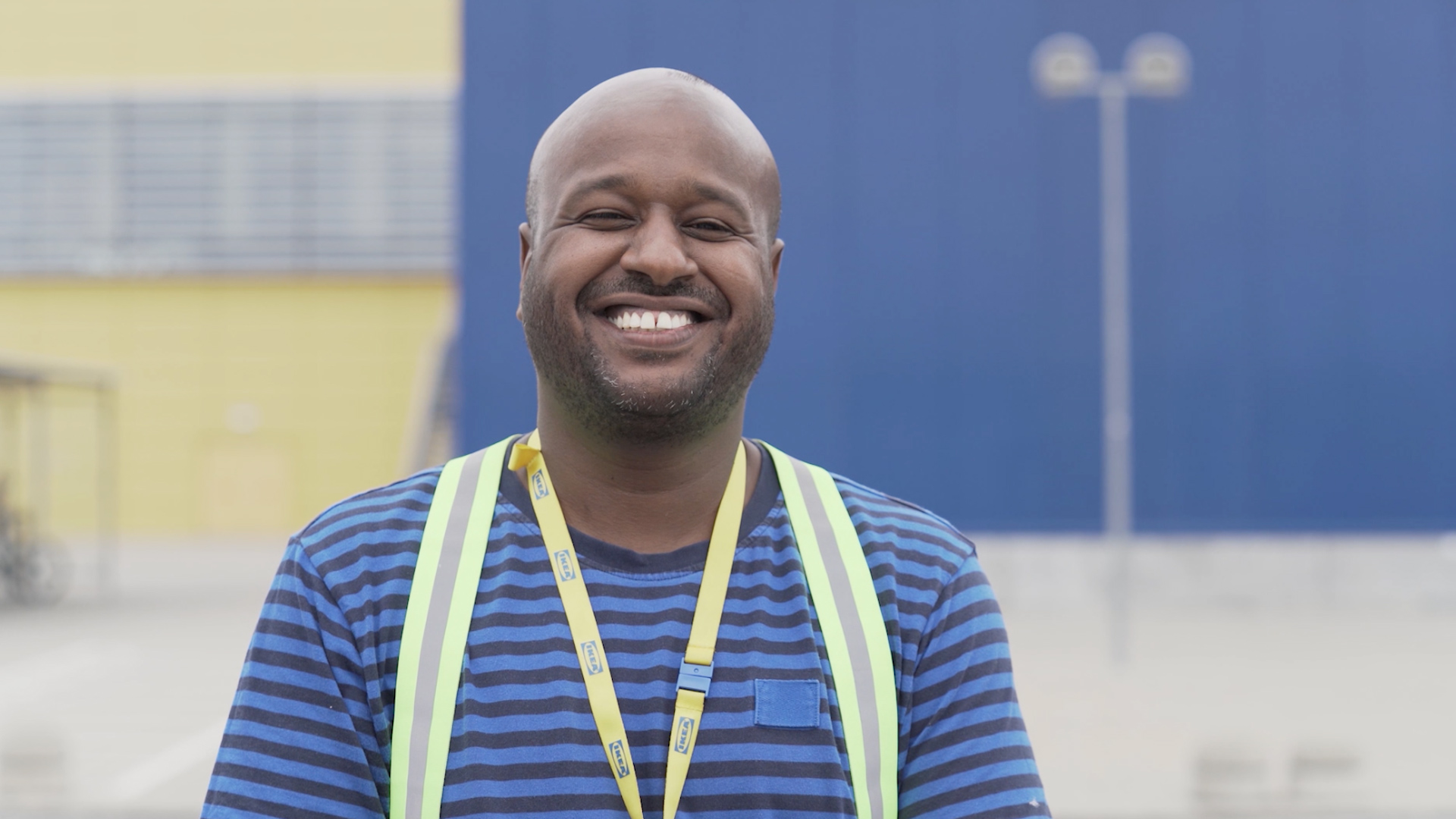UNHCR helps Palestinians mark Eid in Baghdad
UNHCR helps Palestinians mark Eid in Baghdad

BAGHDAD, Iraq, October 15 (UNHCR) - The UN refugee agency was able to bring a little bit of light into the lives of a small group of Palestinian children and their families during the Eid al-Fitr celebrations that mark the end of the holy Muslim fasting month of Ramadan.
Violence tapered off at the start of the three-day Eid festival on Friday, but bombings and assassinations marred the festivities in some areas. In Baghdad, UNHCR helped 120 Palestinian children who have lost one or both parents to observe Ramadan in dignity with their families.
One of UNHCR's partners, Islamic Relief, distributed food and children's clothing so that the Palestinians could enjoy this important date in the Muslim calendar. These Palestinians have lost a breadwinner and are effectively trapped in their homes, afraid to move but also afraid to stay.
There are still some 15,000 Palestinians remaining in Iraq - less than half of the estimated figure in 2003. UNHCR has repeatedly called for international support for the Palestinians, including hundreds struck at the borders with Jordan and Syria, but with few results.
With the food distributed by Islamic Relief, Umm Khaled was able to feed her son and other family members in the troubled Baghdad district of Baladiyat, an area caught in militia crossfire and frequently raided during Ramadan.
"This year, Ramadan is different from the previous years," she said. "Life is becoming more and more difficult under worsening security conditions and the terrible increase in the price of food. I am very pleased with the Ramadan food parcel this year, especially with the rice. May Allah bless you and the generous donor for remembering us during this holy month."
Like many other Iraqis, Khaled has been driven into poverty by the constant violence and general unemployment. "I sometimes sew clothes for neighbours, but again this is not enough to make ends meet." Food prices are rising steeply in Baghdad as Iraq's Public Distribution System (PDS) crumbles under the pressure.
Khaled said her family rarely ate meat because it was far too expensive at US$8 for a kilogramme of beef. "We haven't had any rice for the last four months and the price has more than doubled during Ramadan. We don't receive the PDS rations regularly and when we do get them, many items are missing."
Ramadan is a time for sharing with family and for giving. In this spirit of charity, Islamic Relief provided food parcels to vulnerable families throughout Iraq. The relief and development charity, together with UNHCR, will continue to support Baghdad's Palestinians, helping them pay for accommodation, find jobs, access medical treatment and ensure an education for their children.
Also in recognition of Eid, UNHCR delivered food last Thursday to 193 Iranian Kurdish refugees stranded for more than two-and-a-half years at Karama, an encampment near Iraq's border with Jordan. The refugees received canned fish, apples, eggplants, onions, tomatoes, oranges and cheese in addition to their standard rations.
"While UNHCR is trying to contribute to the celebration of Eid by providing the most vulnerable refugees and displaced with increased assistance, its sincere hope is that all concerned parties will seize the opportunity of this celebration to show forgiveness and commitment to peace," said UNHCR Representative for Iraq Janvier de Riedmatten.
UNHCR has continued to provide needs-based support to an estimated 49,000 refugees and 2.2 million internally displaced persons, as well as returnees and stateless persons, inside Iraq.







